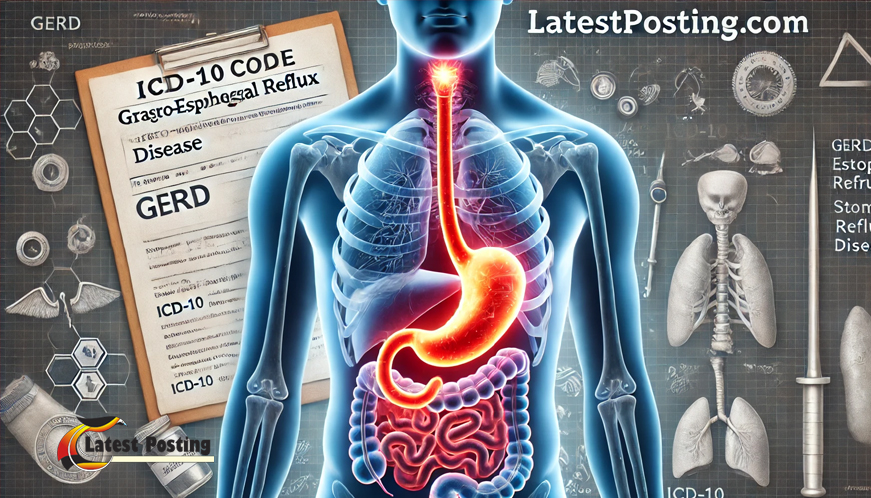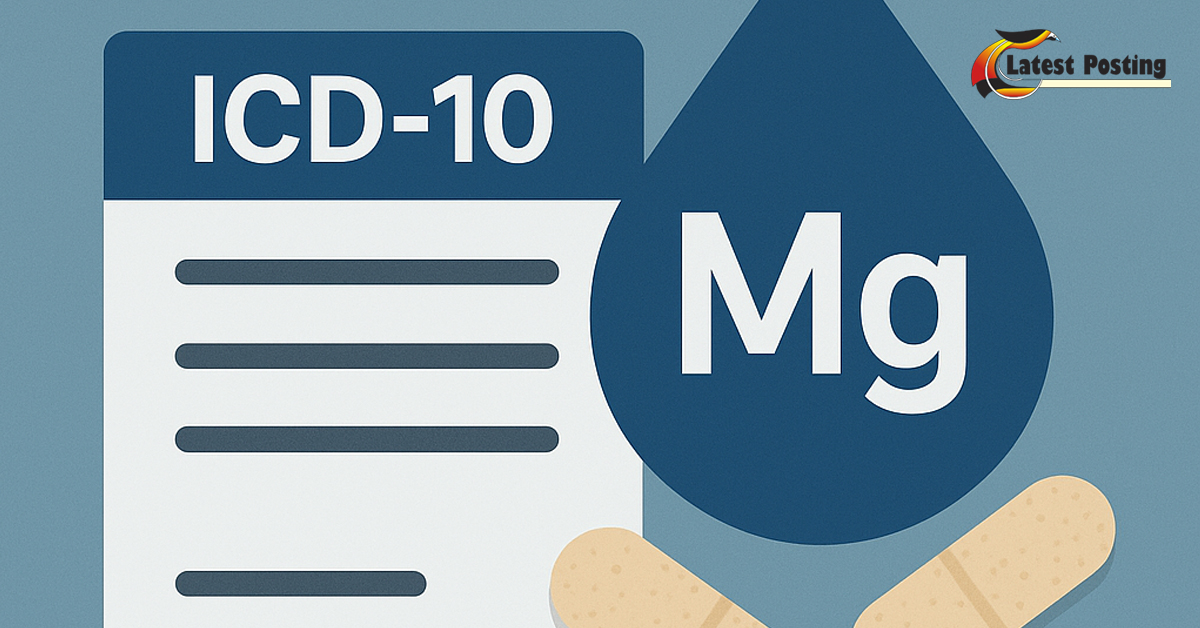Gastroesophageal reflux disease (GERD ICD 10) is a chronic digestive condition affecting millions worldwide. Characterized by acid reflux and heartburn, GERD can lead to severe complications if left untreated. In medical coding and billing, the ICD-10 code for GERD is essential for accurate diagnosis and treatment documentation.
In this guide, we will explore GERD in detail, its ICD-10 classification, symptoms, diagnosis, treatment options, and frequently asked questions.
What is GERD?
GERD occurs when stomach acid frequently flows back into the esophagus, irritating its lining. This reflux can cause discomfort and potential damage over time.
Common Symptoms of GERD:
- Persistent heartburn
- Regurgitation of food or sour liquid
- Difficulty swallowing (dysphagia)
- Chronic cough
- Chest pain
- Hoarseness or sore throat
- Sensation of a lump in the throat
Causes of GERD:
GERD is caused by a weak or malfunctioning lower esophageal sphincter (LES). Several factors contribute to this condition:
- Obesity
- Pregnancy
- Hiatal hernia
- Smoking
- Consuming fatty or fried foods
- Excessive alcohol or caffeine intake
ICD-10 Code for GERD
In medical coding, GERD is classified under ICD-10 code K21.9 (Gastroesophageal reflux disease without esophagitis). If esophagitis is present, the correct code is K21.0.
| ICD-10 Code | Description |
|---|---|
| K21.9 | GERD without esophagitis |
| K21.0 | GERD with esophagitis |
Correct coding is crucial for insurance claims, treatment plans, and research purposes.

Diagnosing GERD
Physicians diagnose GERD based on symptoms, medical history, and diagnostic tests such as:
- Endoscopy – Examines the esophagus for damage.
- pH Monitoring – Measures acid levels in the esophagus.
- Esophageal Manometry – Tests esophageal muscle function.
- Barium Swallow Test – Assesses swallowing ability and structure.
Treatment and Management of GERD
Treatment for GERD focuses on symptom relief and preventing complications.
Lifestyle Changes:
- Maintain a healthy weight
- Avoid trigger foods (spicy, fatty, acidic foods)
- Eat smaller meals
- Avoid lying down after eating
- Elevate the head of the bed
Medications for GERD:
- Antacids (e.g., Tums, Maalox) for quick relief
- H2-receptor blockers (e.g., Ranitidine, Famotidine)
- Proton pump inhibitors (PPIs) (e.g., Omeprazole, Lansoprazole) for long-term treatment
Surgical Options:
For severe cases, surgery such as Nissen fundoplication may be recommended.
Complications of GERD
If left untreated, GERD can lead to severe complications such as:
- Esophagitis – Inflammation of the esophagus
- Esophageal Stricture – Narrowing of the esophagus due to scarring
- Barrett’s Esophagus – Pre-cancerous changes in esophageal lining
- Esophageal Cancer – Increased risk due to prolonged acid exposure
Prevention Tips for GERD
- Eat slowly and chew thoroughly
- Avoid overeating
- Reduce stress
- Stay physically active
- Wear loose-fitting clothes
FAQs About GERD and ICD-10 Coding
1. What is the primary ICD-10 code for GERD?
- The primary code is K21.9 (GERD without esophagitis).
2. How is GERD different from acid reflux?
- Acid reflux is occasional heartburn, whereas GERD is a chronic condition requiring medical attention.
3. Can GERD be cured permanently?
- While GERD can be managed effectively, it may require lifelong lifestyle modifications and medication.
4. How does ICD-10 coding help in GERD treatment?
- Accurate ICD-10 coding ensures proper diagnosis, treatment, and insurance claims processing.
5. What are the risk factors for developing GERD?
- Obesity, smoking, poor diet, and pregnancy increase GERD risk.
Conclusion: Managing GERD Effectively
GERD is a common but manageable condition when diagnosed early and treated properly. Using the correct ICD-10 code (K21.9 or K21.0) is crucial for accurate medical documentation. By adopting healthy lifestyle habits, seeking medical treatment, and monitoring symptoms, individuals can effectively manage GERD and prevent complications.
If you suspect you have GERD, consult a healthcare provider for personalized treatment. For more insights into medical coding and health conditions, stay connected with our blog.





One thought on “GERD ICD 10: A Comprehensive Guide to Diagnosis and Coding”